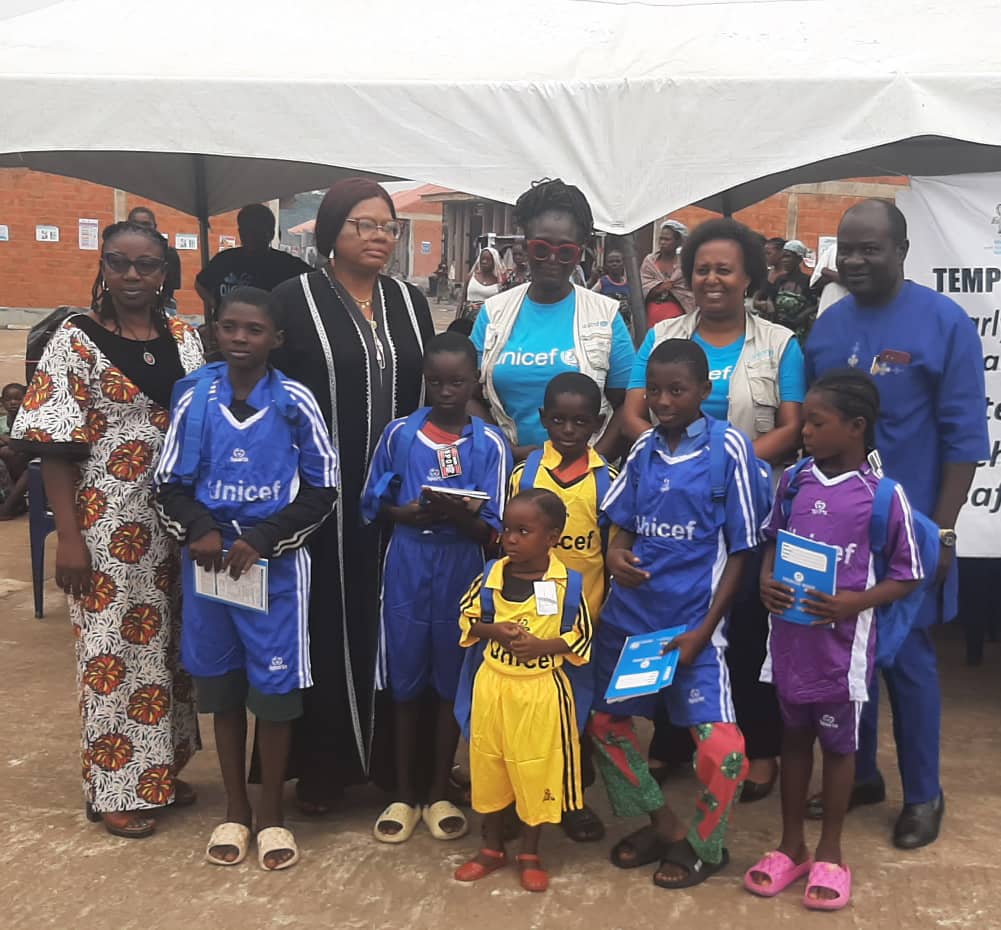From Scholastica Hir, Makurdi
The United Nations Children’s Fund (UNICEF) has donated learning materials to over 1,500 internally displaced children in Benue State, victims of the herdsmen attack on Yelwata community in Guma Local Government Area, currently sheltered at the International Market IDP camp in Makurdi, the Benue State capital.
Presenting the materials to the state government at the temporary camp on Thursday, the UNICEF Officer-in-Charge and Chief of Field Office, Enugu, Juliet Chiluwe, emphasised that education is critical for displaced children.
She called on the State Emergency Management Agency (SEMA) and the State Universal Basic Education Board (SUBEB) to provide further support to complement UNICEF’s efforts, ensuring that children at the camp do not miss out on their right to education, stating, “Education cannot wait.”
“As UNICEF, we remain committed to ensuring that each child does not miss out on their rights; in this instance, education cannot wait.
“So, after the displacement from Yelwata, UNICEF stepped in to address the needs of children and women and realised that the children were missing out on their learning. In collaboration with the Ministry of Education and SEMA, we created temporary learning spaces to ensure the children do not continue to miss out on their learning.
“Today marks a critical stage in their lives whereby UNICEF is supporting the Ministry of Education and SEMA to ensure that the children have learning materials.
“There are over 1,500 IDP children, and we are here to support them with educational materials. Today, we are distributing school bags, exercise books, and sportswear because, apart from learning, we are stimulating their learning and interaction through play.”
She expressed optimism that the intervention would enhance and sustain the children’s abilities to read, write, and enumerate.
“We therefore request more support and collaboration from the state government to ensure we continue supporting these children to the end.
“There is a need for more educational and learning materials to be supplied. We need more teachers, whiteboards, and to ensure that, even when the children return to their homes, we continue to support them until they progress to tertiary institutions.”
Also speaking, the UNICEF Education Specialist, Enugu Field Office, Dr Agatha Nzeribe, acknowledged that the displaced children are at a critical stage in their lives, stating that neglecting their education now would impact their future and the quality of human capital in society, affecting the economy and opportunities in the country.
She explained that UNICEF has been actively supporting education for IDPs in the state, providing learning spaces, materials, and psychosocial support in camps.
“There are Temporary Learning Spaces (TLS) where children can access early learning, school meals, basic health services, and participate in protection activities. UNICEF is also focused on improving literacy and numeracy through the Teaching at the Right Level (TaRL) approach, grouping children by ability,” she said.
She appealed to the state government to provide more support to enhance the education of displaced children.
Earlier, the Permanent Secretary, Ministry of Education and Knowledge Management, Mrs Helen Nambativ, commended UNICEF for addressing the humanitarian crisis in the state and supporting displaced children.
She noted that the children are at a critical stage in their lives, and without intervention, their future could be jeopardized.
While acknowledging UNICEF’s interventions, she stated that the state government, led by Rev Fr Hyacinth Alia, is doing all it can to cater to the needs of IDPs, especially women and children.


